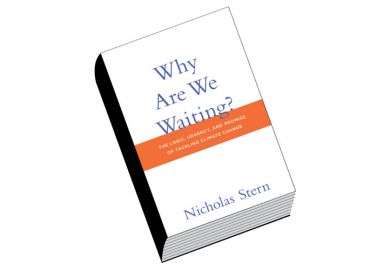Too little attention has focused on how open access to data can be used by “nefarious interests” to distort and damage scientific enquiry, a senior academic has warned.
David Petley, pro vice-chancellor for research and enterprise at the University of East Anglia, said that the “Climategate” row surrounding his institution’s Climatic Research Unit showed the negative side of open data, which was generally positively viewed as a potentially transformative resource in science.
“Bogus analysis” of “cherry-picked data”, from stolen or leaked emails and data from the unit in 2009, was used to claim that UEA scientists were suppressing proof that climate change was not happening, Professor Petley told an audience at a Westminster Higher Education Forum event in central London on 7 July.
The episode, which arguably shook some people's faith in the existence of global warming, highlighted how unfettered access to complex datasets could actually damage scientific endeavour, explained Professor Petley.
“Public understanding of climate change has been really damaged by open data,” he said. UEA scientists accused of manipulating data or withholding information from critics were later cleared of any wrongdoing by an independent review, he added.
While he was “supportive of open data as a concept”, it was possible for certain interests to select information from it and put it out in the “grey literature” outside normal academic publishing, with such reports then used uncritically in the mainstream media, Professor Petley said.
Open data can be used by those with “nefarious interests” to cause “damage to science”, he added.
“There will be people who use open data [to be] deliberately unhelpful and manipulative. We have seen some of that happening over the past three weeks,” he said, in a reference to claims made during the European Union referendum campaign.
The extra cost of open data was also raised by several delegates, including Ottoline Leyser, director of the University of Cambridge’s Sainsbury Laboratory.
“The cost to the researcher [in terms of] their time is relatively high…and that should be discussed, rather than just being evangelical about saying ‘all must be published’,” said Professor Leyser.
Professor Leyser, a former member of the Nuffield Council on Bioethics, also warned that the UK’s “hyper-competitive” research culture may be incentivising “corner-cutting, back-stabbing, secrecy and conservatism”.
Citing a Nuffield Council review of research behaviours that she led in 2014, which surveyed almost 1,000 scientists, Professor Leyser said that “people had gone into science…interested in carrying out rigorous and accurate research” with the belief that it was a “creative initiative catalysed by a community of people working together”.
But the "publish or perish" culture may be “incentivising and driving exactly the opposite behaviours”, she said.
“The criteria [of the research excellence framework] are very reasonable, but the way they play out [can lead to] deeply perverse consequences,” she added.
Register to continue
Why register?
- Registration is free and only takes a moment
- Once registered, you can read 3 articles a month
- Sign up for our newsletter
Subscribe
Or subscribe for unlimited access to:
- Unlimited access to news, views, insights & reviews
- Digital editions
- Digital access to THE’s university and college rankings analysis
Already registered or a current subscriber?










